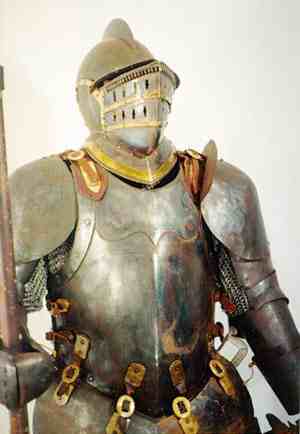 "Real courage defends values, principles and people, not property and profits."
"Real courage defends values, principles and people, not property and profits."
Mark Twain once wrote, “Courage is the resistance of fear, the mastery of fear- not the absence of fear." Courage is key as we explore the character of healthy authentic leaders. But what is courage and what does it look like in real life? When thinking about those we consider to be brave, we often stop short of considering what was going on inside them as they did, said or took a courageous stance in support of something they deeply believed in. Truth be told; many report feeling a great deal of fear. The reality is; fear is universal to us all. We may all have different thresholds and tolerances of fear, regardless we all know fear. Courage is demonstrated when we choose to do the virtuous without being dissuaded by fear.
We can easily forgive a child who is afraid of the dark; the real tragedy of life is when men are afraid of the light. – Plato
Courage is the healthy balance between cowardice and rashness. Obviously, the decision to confront one's fears separates it from cowardice, but being courageous is very different than rashness. Rashness is an ignorance of the risks; the potential pain and the fear of a particular decision. Courage is informed, and the risk is evaluated and a course is set with thoughtful action.
Authentic leaders of character understand values, principles and the intrinsic value of people are those things which need to be defended over profit, position and property. The governing values of a leader are those things which in the face of a threat must be defended because they are the right thing to do, even when they may not be the most profitable or popular courses of action. It is here that courage as a character trait is really manifested.
Courage is grace under pressure. – Ernest Hemingway
Former Australian Prime Minister, Paul Keating (1991-1996) astutely recognized the role of courage in leadership when he said “Between the conception and the execution there is faith, hope and courage. Leaders fail when they imagine things but don’t do them.” Faith, hope and courage is the fuel, the sustenance in the transition from dream to reality. It helps us confront the fears of challenging the status quo, to dream and take tangible, intelligent steps to the actualization of those dreams. More specifically, I believe faith, hope and love to be a powerful combination to produce the purest, noblest forms courage.
Actions that are required to bring about meaningful, healthy change require this kind of courage. It is this kind of courage that distinguishes true significance from mere success. The courage to change is absolutely key – Charles Darwin wrote, “it is not the strongest that survive, nor the most intelligent, but the ones who are most responsive to change."
We must build dikes of courage to hold back the flood of fear. – Martin Luther King Jr.
As leaders, we need to confront our fear and help those we lead do likewise. We need to overcome our fear: fear of failing, change, of being on the outside and having opinions that may be contrary to the status quo. Ray Weekes describes these fears as “the enemies of timely action, responsiveness, flexibility and commitment." Fear stands as the enemy of justice, of equity, of mercy, creativity, innovation, of truth, hope and love. Leaders of character are courageous as they are inspired by that which is virtuous, true and beautiful – who choose to live by these values and principles because they recognize it as intrinsically necessary for meaningful success and prosperity. This is demonstrated powerfully through the lives of many historical figures. Those who chose to stand against fear, racism and more. Consider Gandhi in his resolute non-violence for an independent India. Nelson Mandela’s dream of a free and equitable South Africa, William Wilberforce in the abolition of the slave trade and Martin Luther King Jr. in the Civil Rights Movement. While there are some profound differences in the way these people chose to lead, all of them exemplified courage in the way they confronted their own fears and led others to do the same and, therefore, affected change in significant and lasting ways.
But the bravest are surely those who have the clearest vision of what is before them, glory and danger alike, and yet notwithstanding, go out to meet it. – Thucydides
In discussions with many successful individuals, at the end of their lives, they find more meaning when they were courageously living their values and principles than they did in their bank accounts and resume’. The old saying ‘what does it profit a man to gain the whole world and lose his soul’ takes on a very concrete, profound significance when it is all said and done.
__________________________________
Suggested: Read Ray Weekes section on Courage in The Seven Heavenly Virtues of Leadership.










